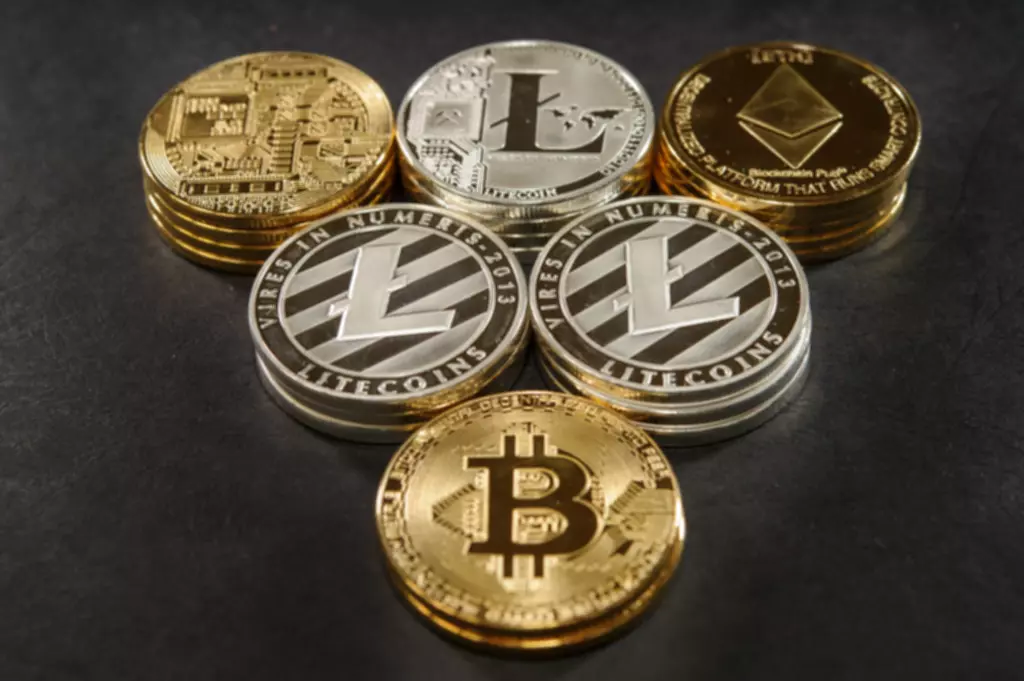Content
They are willing to buy and sell securities during rapidly-changing conditions when few other people are willing to step in. If a company misses earnings, for example, there will be an exodus out of the stock. In that day, brokerages would call in orders to the exchange and then specialists on the floor of the exchange would pair those orders with a willing counterparty.

If you want to do well in the trading world, you should learn who’s running the financial markets and who stands in your way. In this guide, we’ll cover everything from a broad definition to common myths and trading advice. Your results may differ materially from those expressed or utilized by Warrior Trading due to a number of factors.
Nasdaq Baltic Market
Market maker refers to a company or an individual that engages in two-sided markets of a given security. The speed and simplicity with which stocks are bought and sold can be taken for granted, especially in the era of app investing. It takes just a few taps to place an order with your brokerage firm, and depending on the type of order, it can be executed within seconds. They profit from the bid-ask spread, and they benefit the market by adding liquidity. IG International Limited is licensed to conduct investment business and digital asset business by the Bermuda Monetary Authority. Market makers usually also provide liquidity to the firm’s clients, for which they earn a commission.
Market makers are highly capitalized traders who profit by providing liquidity to the rest of the market. The proposal requires a company trading more than 1% of a stock’s volume to be listed as a market maker for that stock. In the absence of market makers, an investor who wants to sell their securities will not be able to unwind their positions. It is because the market doesn’t always have readily available buyers.
Market makers are individuals or firms that act equally on both the buy-side and the sell-side of a financial market to facilitate smoother trade. Ask PriceThe ask price is the lowest price of the stock at which the prospective seller of the stock is willing to sell the security he holds. In most of the exchanges, the lowest selling prices are quoted for the purpose of the trading.
However, there’s a line where it could get illegal, such as wash trading and other efforts to push the price up. At the start of a trading session, a market maker must define the optimal opening price. Robinhood, or your broker of choice, takes your order to a firm known as a wholesaler or market maker. Themarket makers strategylies https://xcritical.com/ in the process they adopt and proceed with towards converting an illiquid market into a liquid one. Crypto Assets See our spotlight page to expand your knowledge and understand the risks of investing in crypto assets. Ross Cameron’s experience with trading is not typical, nor is the experience of traders featured in testimonials.
Why I Don’t Short Stocks – Ross Cameron
Market makers are usually large banks or financial institutions that keep the market functional by infusing liquidity. At one price and sell them for another price , slightly higher than what they paid. Whether traders show their interest in buying shares or selling them, they tend to support both. Trade VolumeThe volume of trade is the overall measure of the number of securities, shares or contracts traded during a particular trading day. Bid PriceBid Price is the highest amount that a buyer quotes against the “ask price” to buy particular security, stock, or any financial instrument.
Becoming an experienced trader takes hard work, dedication and a significant amount of time. To incentivize traders to use them, they all offer slightly different rebates for routing your quotes. They do this by being “first in line” to buy on the bid when a seller “crosses the spread” with a market order. The floor traders were tall and broad-shouldered men, often from a competitive sports background because of pit trading’s physical aspect. Nowadays, most market making is done by computers, with little human interaction in actual trading. Humans instead develop highly sophisticated algorithms and allow them to trade unfettered.
Myths About Market Makers
Liquid markets are characterised by price continuity and a relatively small bid-ask spread. The effectiveness of a market is essentially determined by its reliability. Despite significant volatility, a market maker should be able and willing to set a price in various sizes. This can be accomplished by investing in a variety of distribution channels. There’s no rule stopping individuals from becoming a market maker, and whenever you have a bid and offer entered, you’re making a market, albeit a small one.
In this way, the market maker refills their inventory of Apple shares which had previously been sold in the morning. 74% of retail client accounts lose money when trading CFDs, with this investment provider. Please ensure you understand how this product works and whether you can afford to take the high risk of losing money. Securities and Exchange Commission defines a “market maker” as a firm that stands ready to buy and sell stock on a regular and continuous basis at a publicly quoted price.
- Briefly, they function as a counterparty to any trades happening at any given time, thus taking the opposite side of the trade.
- Market makers are required to continually quote prices and volumes at which they are willing to buy and sell.
- Market makers typically work for large brokerage houses that profit off of the difference between the bid and ask spread.
- When they participate in the market for their own account, it is known as a principal trade.
- This would reduce liquidity, making it more difficult for you to enter or exit positions and adding to the costs and risks of trading.
- If you’re struggling with any of the above, SmartAsset’s investing guide can help you figure out the initial steps toward smart investment.
When participating in the program, a member commits to continuously maintain bid and offer orders for the selected shares following requirements set in Market Making guidelines. Since market makers are sometimes involved as both brokers and dealers, this creates a conflict of interest because, as brokers, they are supposed to provide clients with the best execution. In contrast, as dealers, they become the counterparties and are therefore trading for profit. Some market participants, from time to time, sell to the market maker at his buying price, while other investors buy from him at his selling price.
Market Makers Explained
Floor traders were rarely mathematical geniuses and instead honed market intuition through social cues from other traders in the pit and back-of-the-napkin calculations. You’d call your broker to place an order, and your broker would send one of their staffers down to the trading pit to hand the ticket to a trader. Add market-maker to one of your lists below, or create a new one. I have no business relationship with any company whose stock is mentioned in this article.
A market maker is a market participant that buys and sells large amounts of a particular asset in order to facilitate liquidity and ensure the smooth running of financial markets. An individual can be a market maker, but due to the quantity of each asset needed to enable the required volume of trading, a market maker is more commonly a large institution. A market maker participates in the securities market by providing trading services for investors and boosting liquidity in the market. They specifically provide bids and offers for a particular security in addition to its market size.
The offer to buy is known as the bid, while the latter offer to sell is the ask. Without market makers, however, trading would slow down significantly. It would take considerably longer for buyers and sellers to be matched with one another.
Basically, since they control the amount of stocks within the market, they can adjust the prices based on inventory. When you upgrade to a live account, you’ll already be accustomed to how the market works and make sound decisions. If you don’t want to deal with market makers’ direct influence, switch to a different time frame. Large players aren’t interested in scalpers, and the risk of being affected by a market maker is much smaller for medium-term trades.
References
Instead, they sell their inventory to complete multiple orders simultaneously. They keep finding buyers for the available securities and continue trading activities without any pause. This is why they are identified as market makers who build the market by keeping it efficient all the time.
How Market Making Became Electronic
The market maker may then decide to impose a $0.05 spread and sell them at $100.05—this is the ask price. Market makers simultaneously post both a bid and ask for a stock. Once posted, a market maker has an obligation market maker crm to honor that offer if a trader wants to transact at that price. This creates a reliable ecosystem for traders, since they can see through level two quotations just how much bid and ask is available at varying prices.
Options Market Makers
The network sets the best bid/ask price for the stocks depending on their study. The brokers match buyers’ and sellers’ shares and price requirements and become a middleman for further settlement. These networks earn through commissions they receive for each transaction that occurs. Much like in equities markets, market makers exist in the forex market in order to improve liquidity and facilitate efficient trading. Market makers are what allow buy and sell orders placed by individual and institutional investors to be executed quickly.
By holding large numbers of shares and being willing to buy or sell shares at any time, market makers create liquidity for the stock or stocks they work with. When investors and traders buy shares of stock, those shares have to come from somewhere. When they sell shares of stock, those stocks have to go somewhere. Some types of market makers are known as “specialists.” A specialist is a type of market maker who operates on certain exchanges, including the New York Stock Exchange. Although their functions are similar, specialists focus more on facilitating trades among brokers directly on the floor of an exchange.
Reference Market-Maker definition
They aim to capture a piece of the “spread,” which is the difference between the best bid price and the best offered price. They’re ‘making the market’ by ensuring traders can always buy or sell, hence the name ‘market maker.’ Market makers come in many forms. According to Glassdoor, a leading workplace data website, those who work as/for market makers make a median salary of around $109,766 per year.
This would reduce liquidity, making it more difficult for you to enter or exit positions and adding to the costs and risks of trading. The difference between the ask and bid price is only $0.05, but the average daily trading volume for XYZ might be more than 6 million shares. If a single market maker were to cover all of those trades and make $0.05 off each one, they’d earn more than $300,000 every day. It allows them to execute trades more or less whenever they want.
